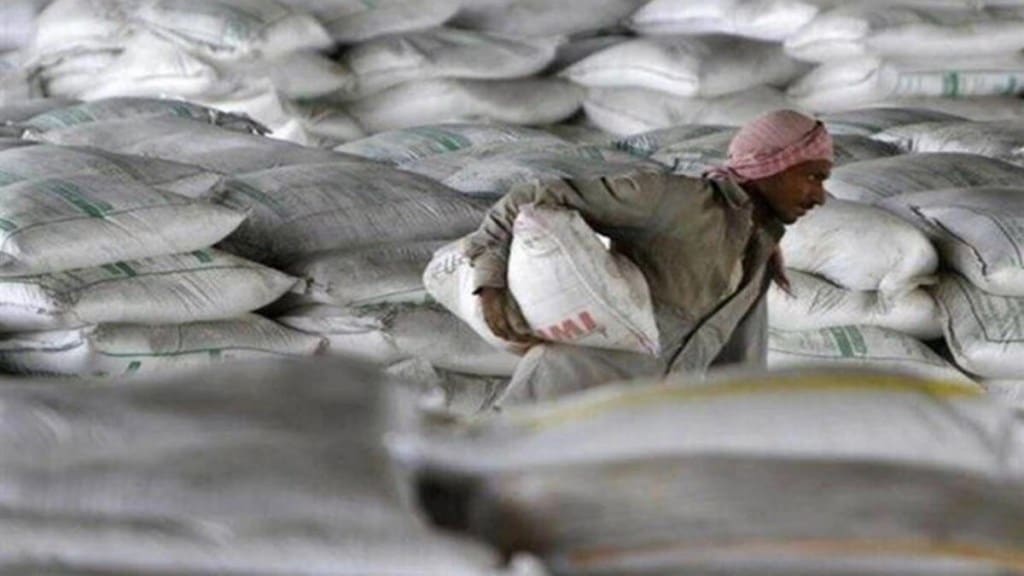After hitting an all-time last fiscal, the cement prices are expected to slip by 1-3% in FY24 due to cooling input costs and heightened competitive intensity amidst robust demand outlook.
The prices had clocked a 4% compound annual growth rate (CAGR) over the past four years to a new all-time high of Rs 391 per 50 kg bag in the last fiscal. The run-up was due to disruptions caused by Covid-19, followed by a sharp surge in input costs, especially thermal coal, further aggravated by the Russia-Ukraine war, according to a study by Crisil Market Intelligence and Analytics.
Now, heightening competitive intensity and softening input costs are set to reverse the trend, it said.
“We expect cement demand growth to be strong at 8-10% on-year this fiscal, the pre-election year. This, however, will not propel prices up. On the contrary, prices are set to decline ~2% on-year to `382-385 per bag, pulled lower also by relatively moderate growth in the trade segment,” Hetal Gandhi, director–Research at Crisil Market Intelligence and Analytics, said.
The prices had moderated since early 2023 on the back of a gradual softening of energy costs and efforts of manufacturers to gain market share in a seasonally strong fourth quarter. The prices fell sequentially by 1% to `388 per bag on average in the fourth quarter of last fiscal, despite manufacturers carrying high-cost inventory. On an on-year basis, though, prices have remained elevated.
The heightened competitive intensity can be gauged from the fact that, for the first time in several years, there were no pre-monsoon price hikes in April and May this fiscal despite steady demand. The push to improve market share is evident from the top five players comprising 55% volume share last fiscal compared with 49% pre-Covid-19.
The scenario on the input front also favours lower prices. Australian coal prices have declined in the third and fourth quarters (by 10% and 36% on-quarter, respectively) of FY23 after hitting multi-year highs in August and September 2022.
International petcoke prices have also eased beginning the second quarter of FY23, and declined by 13% on-year in the second half of the fiscal in tandem with crude oil prices. Domestic petcoke prices have followed suit, too. Also, domestic petcoke, international petcoke and Australian coal prices fell a further 17%, 23% and 14%, respectively, in May compared with March 2023.
“After the highs of $344 per tonne in FY23, Australian coal prices are forecast to decline to $150-200 per tonne this fiscal. Dated Brent crude is also expected to correct over 17% in 2023, with diesel prices falling in tandem with crude oil prices in the latter half of the fiscal. Easing coal, petcoke and diesel prices will come as a relief for the cement industry, which was reeling under high costs and deteriorating profitability,” Koustav Mazumdar, associate director-research at Crisil Market Intelligence and Analytics, said.
A rebound in fuel prices, which may affect petcoke and coal prices, would be a key monitorable, it added.

